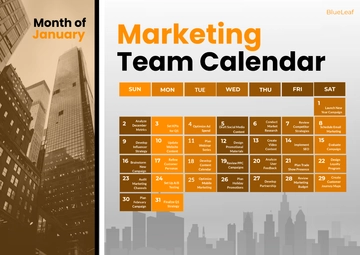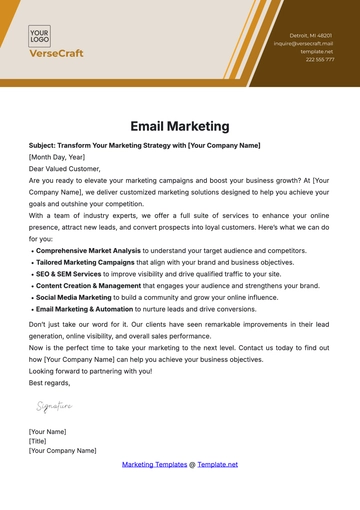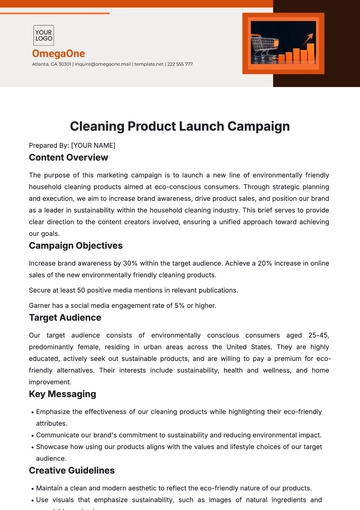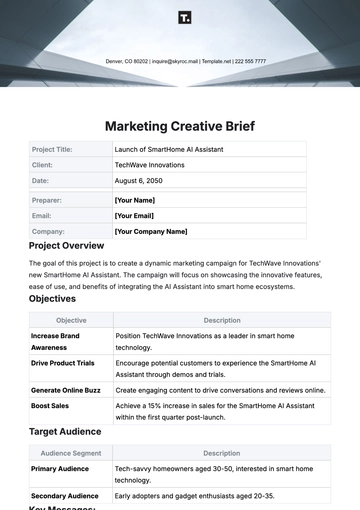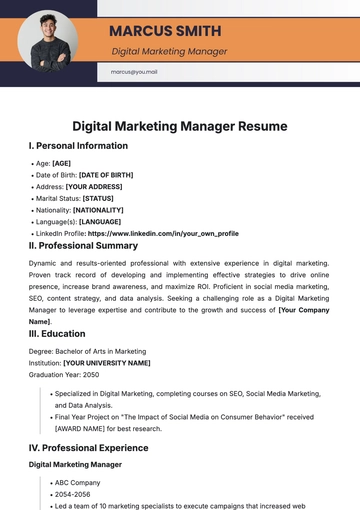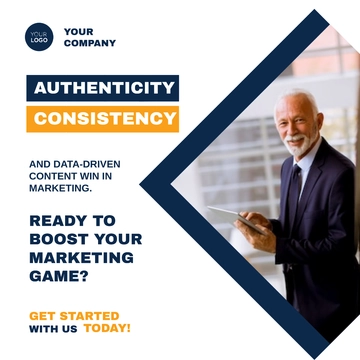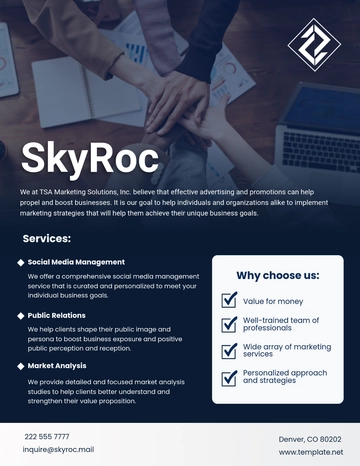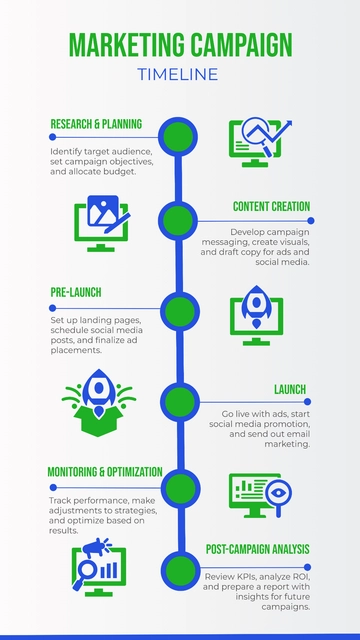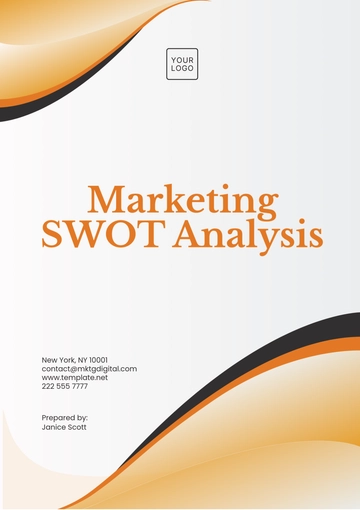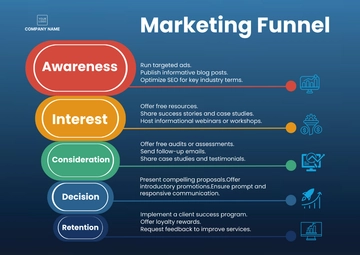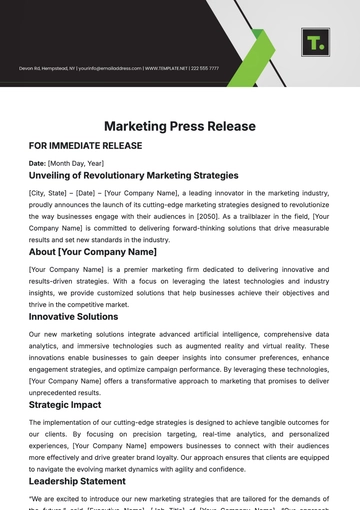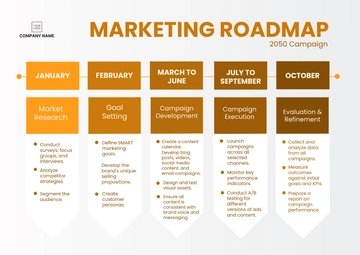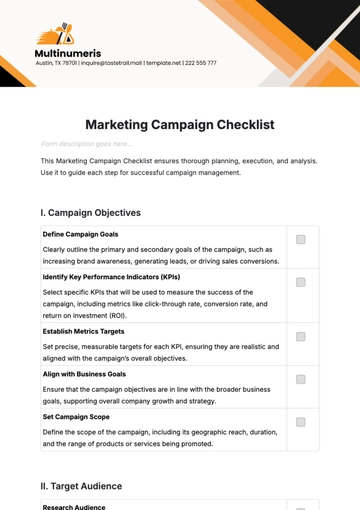Free Ethnographic Process Marketing
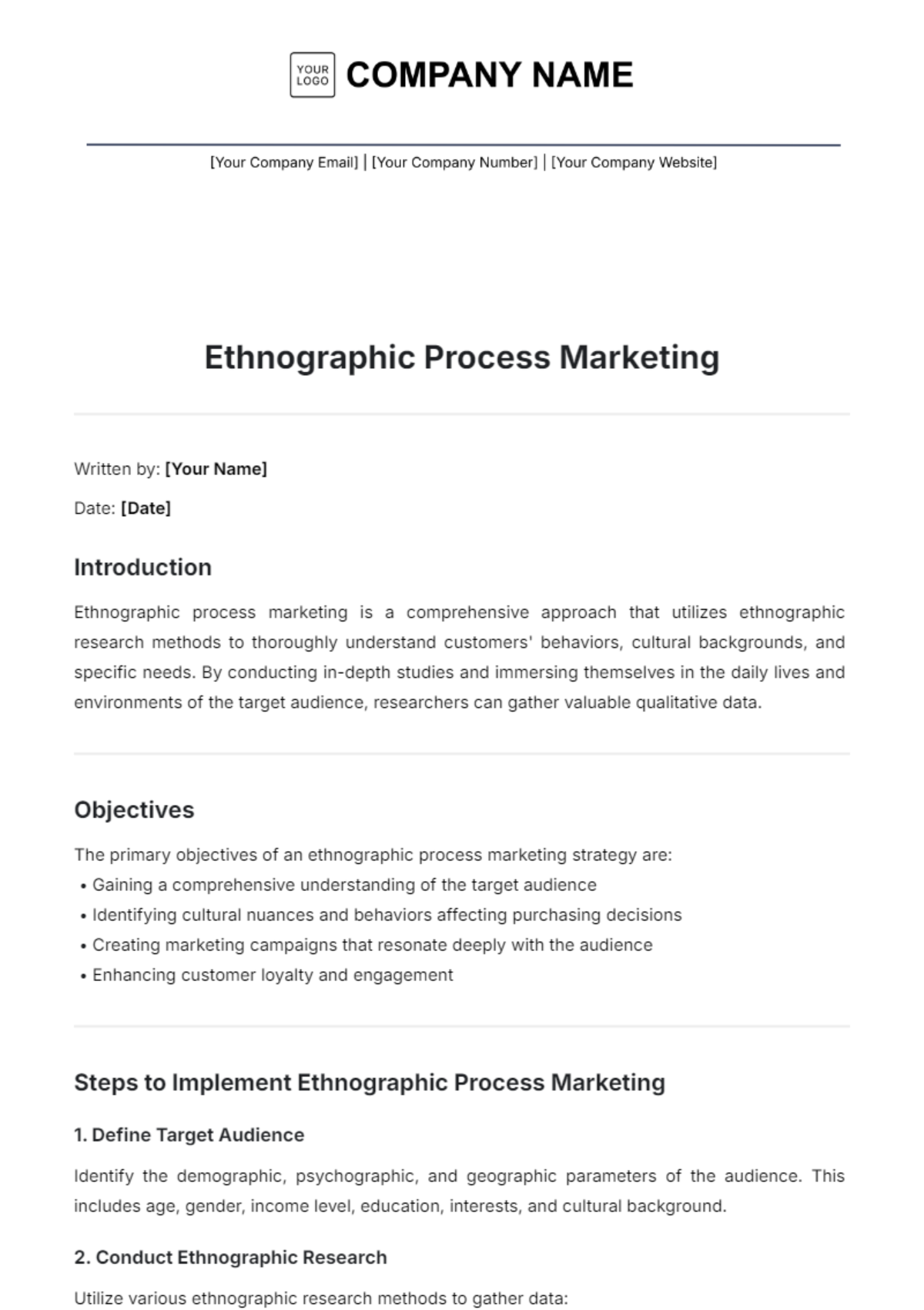
Written by: [Your Name]
Date: [Date]
Introduction
Ethnographic process marketing is a comprehensive approach that utilizes ethnographic research methods to thoroughly understand customers' behaviors, cultural backgrounds, and specific needs. By conducting in-depth studies and immersing themselves in the daily lives and environments of the target audience, researchers can gather valuable qualitative data.
Objectives
The primary objectives of an ethnographic process marketing strategy are:
Gaining a comprehensive understanding of the target audience
Identifying cultural nuances and behaviors affecting purchasing decisions
Creating marketing campaigns that resonate deeply with the audience
Enhancing customer loyalty and engagement
Steps to Implement Ethnographic Process Marketing
1. Define Target Audience
Identify the demographic, psychographic, and geographic parameters of the audience. This includes age, gender, income level, education, interests, and cultural background.
2. Conduct Ethnographic Research
Utilize various ethnographic research methods to gather data:
Participant Observation: Engage with the audience in their natural environment to observe behaviors and interactions.
Interviews: Conduct in-depth interviews to understand personal stories, experiences, and motivations.
Diaries: Ask participants to keep diaries documenting their thoughts, activities, and purchasing decisions.
Social Media Analysis: Analyze social media interactions and content to identify trends and cultural influences.
3. Analyze Data
Analyze the collected data to identify key patterns, themes, and insights:
Identify common behaviors and cultural norms.
Determine pain points and customer needs.
Recognize underlying motivations influencing purchasing decisions.
4. Develop Marketing Strategy
Based on the insights from the ethnographic research, create a tailored marketing strategy:
Content Creation: Develop content that resonates with the target audience's cultural and emotional context.
Personalization: Personalize marketing messages to align with individual preferences and behaviors.
Channel Selection: Choose communication channels that are most effective for reaching the target audience.
Engagement Tactics: Implement tactics that encourage active participation and engagement.
5. Test and Iterate
Launch the marketing campaigns and monitor their performance. Gather feedback and data to make necessary adjustments. Continuously iterate to improve the effectiveness and resonance of the campaigns.
Example of Ethnographic Data Analysis
Insight | Marketing Application |
|---|---|
Customers value community and social connections. | Create marketing campaigns that highlight community events and social engagement opportunities. |
Environmental sustainability is a major concern. | Emphasize eco-friendly practices and products in marketing messages. |
Convenience and time-saving are critical factors. | Promote quick and easy solutions and highlight efficiency in marketing campaigns. |
Conclusion
Ethnographic process marketing is a powerful approach for deeply understanding your audience and creating highly effective marketing strategies. By leveraging ethnographic research techniques, you can craft campaigns that resonate on a cultural and personal level, ultimately driving engagement and loyalty.
- 100% Customizable, free editor
- Access 1 Million+ Templates, photo’s & graphics
- Download or share as a template
- Click and replace photos, graphics, text, backgrounds
- Resize, crop, AI write & more
- Access advanced editor
Elevate your marketing research with the Ethnographic Process Marketing Template, offered by Template.net. This customizable and downloadable template is perfect for capturing in-depth insights and is fully editable in our AI Editor Tool. With its printable format, you can easily tailor it to your specific needs and streamline your marketing strategies effectively.
You may also like
- Marketing Google Slide
- Marketing Letter
- Marketing Quotation
- Marketing Report
- Marketing Strategic Plan
- Marketing Plan
- Marketing Proposal
- Marketing Flyer
- Marketing Presentation
- Real Estate Marketing Plan
- Marketing Contract
- Marketing Agreement
- Marketing Resume
- Marketing Checklist
- Marketing Brochure
- Marketing Banner
- Marketing Schedule
- Marketing Vector
- Marketing Logo
- Marketing Chart
- Marketing Campaign Plan
- Marketing Budget
- Marketing Postcard
- Marketing Poster
- Marketing Facebook Post
- Marketing Instagram Post
- Marketing Newsletter
- Marketing Infographic

